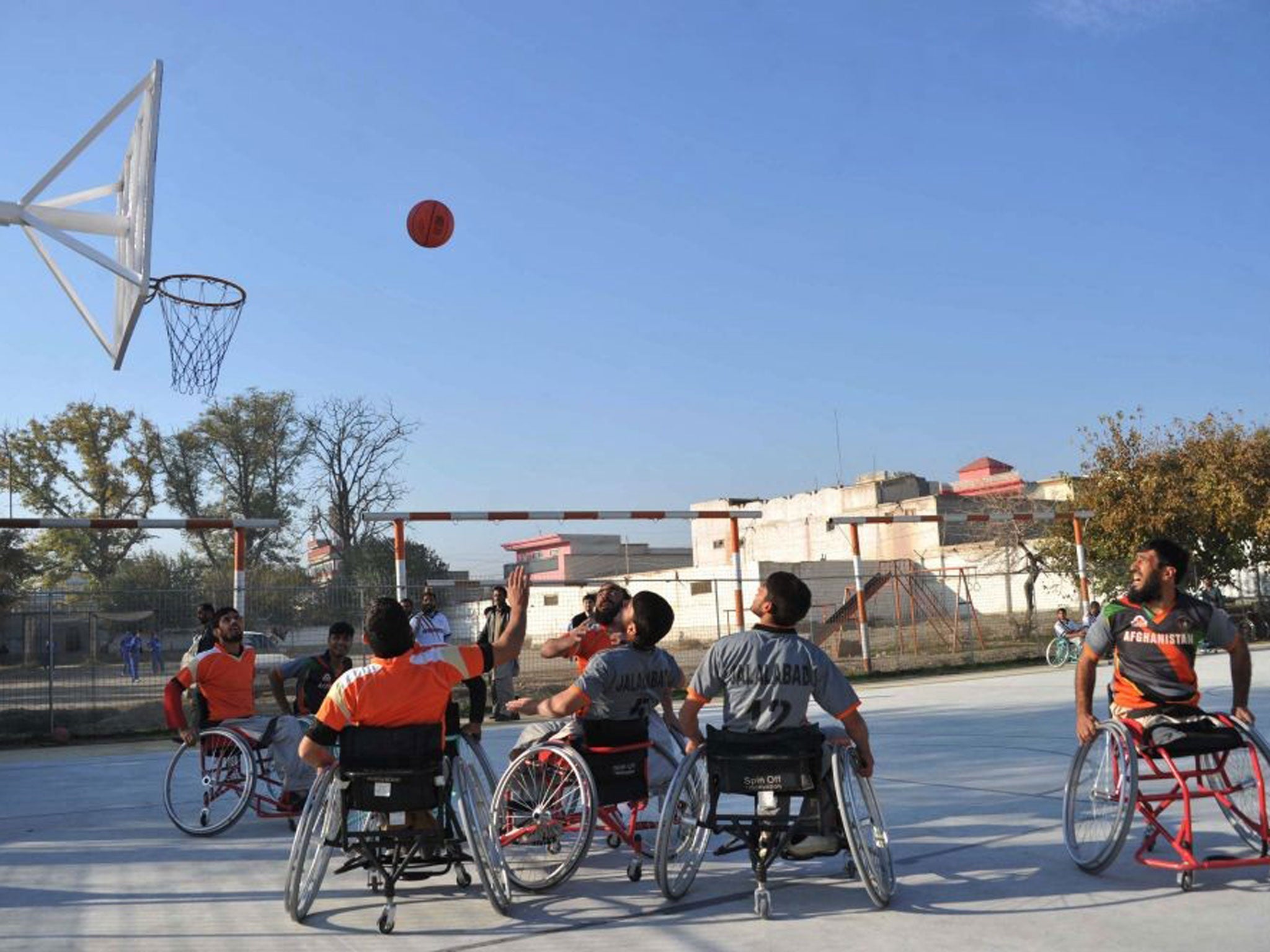Disability and development: Why DFID must include those so often left behind
In the poorest communities, one household in four has a member with a disability


Your support helps us to tell the story
From reproductive rights to climate change to Big Tech, The Independent is on the ground when the story is developing. Whether it's investigating the financials of Elon Musk's pro-Trump PAC or producing our latest documentary, 'The A Word', which shines a light on the American women fighting for reproductive rights, we know how important it is to parse out the facts from the messaging.
At such a critical moment in US history, we need reporters on the ground. Your donation allows us to keep sending journalists to speak to both sides of the story.
The Independent is trusted by Americans across the entire political spectrum. And unlike many other quality news outlets, we choose not to lock Americans out of our reporting and analysis with paywalls. We believe quality journalism should be available to everyone, paid for by those who can afford it.
Your support makes all the difference.We are currently awaiting the Government’s response to the International Development Select Committee’s report on Disability and Development, expected shortly.
I am not alone in hoping they do not miss this opportunity to lead the way in setting out a clear strategy for the inclusion of people with disabilities in their international development work.
It was a serious omission that the current set of Millennium Development Goals did not explicitly recognise the enormous challenge faced by those with disabilities, this additional challenge coming as it does on top of deep-seated poverty and often gender inequality.
There are one billion people with disabilities around the world and 80 per cent live in developing countries. On average, one household in every four in the poorest communities has a member with a disability, which means at least 2 billion people live with the impact of a deeply practical disadvantage on a daily basis.
It is now becoming clear that genuine success against internationally agreed development targets will never be achieved without taking account of the rights, well-being and perspective of people with disabilities.
Who would question everyone has the same rights and access to health, education and employment as everyone else? And yet hundreds of millions of people continue to be excluded and denied these rights.
As a former Education Secretary in the Westminster Government, and as someone who experienced special school for blind children, I’m painfully aware of the vital part access to education plays in liberating both the talent and the spirit of young people. But it is not just a moral or individual imperative but also vital for self-determination and therefore the contribution that can be made to the community and the nation as well as alleviating the need for outside intervention. In other words, trade and aid need to be geared to self-reliance and this is as much about the ladder of learning and the life chances of those with special needs as it is about the population as a whole.
However, when it comes to education we’re currently in an appalling situation: it is estimated that as a child, having a disability more than doubles the chance in some countries you will never have the chance to enrol in school.
When children with disabilities are excluded from education their future economic prospects are severely restricted, contributing to a vicious cycle of poverty. It is essential that all children, including children with disabilities, are able to access and complete a quality basic education delivered through an effective education system.
The Department for International Development’s announcement in September that it would contribute to the building of accessible schools is welcomed, but to deliver education for children with disabilities, it must look beyond physical infrastructure and ensure its education programmes address the wider societal context of inaccessibility and discrimination. To do this there need to be properly trained and committed individuals in key positions to ensure that internationally the proverbial wheel is not constantly reinvented and above all that best practice is spread by those with some genuine experience and continuity in the job.
When I travelled to Kenya, Tanzania and Zanzibar with international development organisation Sightsavers, I witnessed first-hand the inclusive education projects and was particularly moved by the commitment of teachers who, with minimal training and equipment are striving to ensure that all children receive a quality education.
However, sadly, it was clear to me after meeting with various Health and Education Ministers on my visit that children with disabilities were not considered a priority.
Concrete action is needed
It was encouraging that the International Development Committee addressed this critical issue through their recent inquiry and made very clear recommendations to Government about what is needed to improve the lives of children with disabilities living in developing countries.
This report recognised that the Department is a very long way from systematically addressing this issue on the scale that is needed to reach the millions of excluded disabled children.
Interestingly, the Committee recommended that DFID take a phased approach in its development programmes. It was suggested that it choose one or two substantial sectors, including education, and a small number of countries, to focus on, and within these chosen areas it should then pledge to give people with disabilities full access to all its programmes.
The report called for greater ‘ambition’ in their approach to the inclusion of people with disabilities in their programme work.
I urge DFID to build on recent progress by adopting the IDC’s recommendation to develop a coherent “disability strategy with clear targets and timescales”. By showing leadership, it could also influence other nations to take action through pushing for a global development framework that is inclusive of people with disabilities
Embedding action will undoubtedly take time but this is the moment to begin a process of real inclusion, driven by an understanding of what works and overseen by those with the expertise to make it work
Join our commenting forum
Join thought-provoking conversations, follow other Independent readers and see their replies
Comments